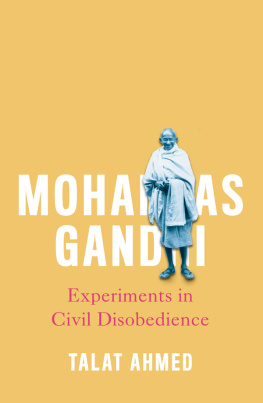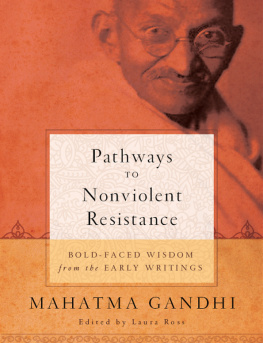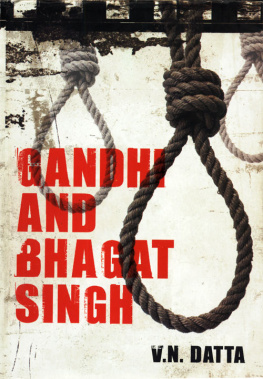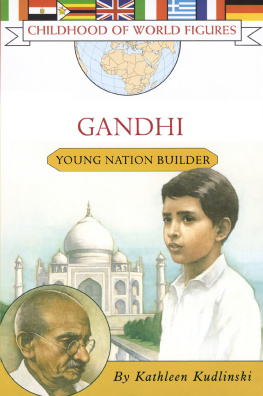Jad Adams is an independent historian working as an author and television producer. His books include The Dynasty , a composite biography of the Nehru family, Tony Benn , a full length biography of the leading radical, and Kipling . He is a Fellow of the Royal Historical Society and is currently a Associate Research Fellow of the School of Advanced Study, University of London.
Praise for Gandhi: Naked Ambition
Readable and provocative Adams strips away Gandhis saintly aura and explores the duality between his grand vision of an independent India and his fastidiousness with regard to his vegetarianism, clothes and sexual abstinence.
Financial Times
Jad Adams biography has the merit of restoring Gandhi to the centre of the political story while offering a full discussion of his extraordinary characteristics The result is a fascinating portrayal of an individuals ambitions and ideas in the context of the struggle for power between the British Raj and Indian nationalism.
Times Literary Supplement
An engrossing biography Adams intent is to separate the myth from the man. He has some sobering insights to offer. Adams has made substantive use of the copious paper trail Gandhi left behind and delved deep into his confessional prose.
Independent
There have been enough hagiographies of this great, peculiar, wilful figure, and after his death there was a concerted effort to erase some embarrassing truths from the Gandhi legend. This is a vividly human, even funny book.
Philip Hensher, Daily Mail
Recounted briskly and concisely by Jad Adams, who is experienced enough to know what to omit and what to emphasise Adams certainly does not pull his punches, and as a result the Gandhi that emerges from his rounded and provocative study is a much more vivid personality For anyone trying to find a way through the myriad byways of modern India and Pakistan, Adams no-nonsense biography is as good a starting point as any.
Herald
Adams focuses not on the idealised apostle of peace, but Gandhi the man who spent much of his life refining his eccentric theories of chastity, vegetarianism, bowel movements and how best to conserve his sperm, which he saw as a vital fluid.
Times of India
Jad Adams critical and irreverent biography of the great man explains his various experiments with celibacy, chastity, brahmacharya and sexuality.
Daily News Analysis (Mumbai)
Ever since his assassination in 1948, Gandhis life has been the subject of legend and controversy. Was he the father of India or an obsessed guru? Gandhis part in bringing the British Raj to its knees is well known, as are his ideas and lifestyle. What this new, provocative biography does is to make his private quest for spiritual perfection the centre of the story.
Daily Express
I have just finished reading Gandhi: Naked Ambition by Jad Adams. I confess when it landed on my table, I did not want to read it. What is there about Gandhi that we do not know? At the best, it could be the personal opinion of the author, who had per force to rely on the published material. What provoked me to read it was the sub-title Naked Ambition . It was deliberately provocative. So was the introduction in which he drew attention to a couple of contradictions in statements made by the Mahatma. Then I could not stop till I reached the last page. I realised that the author, who is a historian and a biographer, is also a television producer. He knows the art of holding a readers interest.
Khushwant Singh, The Tribune
Gandhi
NAKED AMBITION
Jad Adams
First published in Great Britain in 2010 by Quercus.
This paperback edition published in 2011 by
Quercus
21 Bloomsbury Square
London
WC1A 2NS
Copyright 2010 Jad Adams
The moral right of Jad Adams to be
identified as the author of this work has been
asserted in accordance with the Copyright,
Designs and Patents Act, 1988.
All rights reserved. No part of this publication
may be reproduced or transmitted in any form
or by any means, electronic or mechanical,
including photocopy, recording, or any
information storage and retrieval system,
without permission in writing from the publisher.
A CIP catalogue record for this book is available
from the British Library
ISBN 978 0 85738 161 3
10 9 8 7 6 5 4 3 2 1
Typeset by Ellipsis books Limited, Glasgow
Printed and bound in Great Britain by Clays Ltd, St Ives plc
For Julie
Contents
Maps
I NTRODUCTION
My life is its own message.
The world-changing event of 1930 was recorded in every national newspaper and newsreel: in an act of defiance Gandhi had challenged the British Empire by taking untaxed, contraband salt from his own land. Accounts report how he then cleansed himself in the sea, pictures of the time showing the tiny white-clad individual against the pure-white salt flats, a symbol of purity challenging the greatest empire the world had known. As he held up the white crystals for all to see, the nationalist poet Sarojini Naidu cried out, to the acclamation of the crowds: Hail, deliverer!
The iconic image is, as usual in these cases, a fake, a concoction of journalists, film-makers and adulatory biographers. Gandhi did go to Dandi, but the images and accounts of it are a carefully thought out, stage-managed set-piece. The famous picture shows Gandhi three days after he arrived, picking up salt at nearby Bhimrad, ten kilometres from the coast and twenty-five from Dandi. Sarojini Naidu was present when he reached Dandi but she did not utter the often reported cry (which would have been a disappointingly trite utterance, for her). The great photographic moment was a re-enactment for the cameras of the event that had taken place on a muddy beach where the salt was not visible and the act therefore less apparently symbolic.
Gandhis achievement was not in defying the law to gather salt (peasants did that with impunity all the time): it was in announcing that he was going to break the law, then marching for twenty-four days to do it, giving the media plenty of time to comment and orchestrate their coverage.
His political colleagues had been bemused, never considering salt in the slightest bit important; likewise the British authorities, who made no show of strength because of the pettiness of the act. But Gandhi knew the importance of symbolism. He was the most spiritual of men, praying twice daily and incessantly murmuring the name of God, and his attention to diet extended to counting the number of raisins he ate. But more significant than any of his spiritual knowledge was his awareness of image. His oddly assorted clothing reflected the way he had striven to make himself the message: the top-hat and spats of a London barrister, the plain shirt and dhoti of an indentured labourer, the homespun clothes of those who rejected British cloth imports. Finally, when he had an army of supporters clad in homespun yarn, he appeared wearing almost nothing, nude but for a loincloth. This was the image that went around the world one near-naked holy man against an empire. He became an icon. At that time only Charlie Chaplin and Adolf Hitler had achieved such worldwide recognition for their image, such that everyone knew exactly what they stood for.
Gandhis life is the ultimate challenge for a biographer: it was so multifaceted, and there is so much surviving contemporary information about it. Many people demonstrate two aspects of interest in their lives. A national leader may have an incandescent political career and a lurid sex life, but nothing else worthy of comment. It is not unusual to encounter social reformers who have a complex relationship with food, or with religion; many people famous for their achievements have a tumultuous family life. Gandhis political life, spiritual life, family life and sex life were all fascinating; his relationship to food could fill a volume in itself.




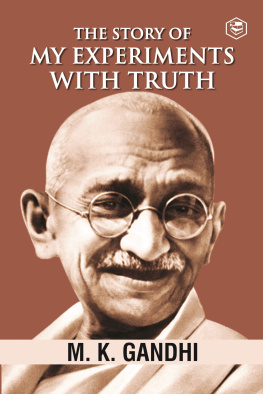
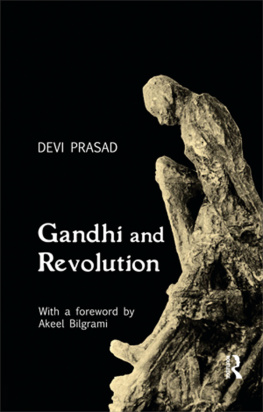
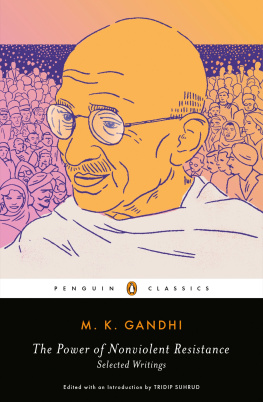
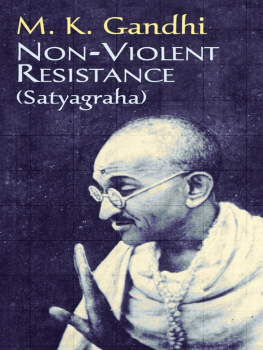

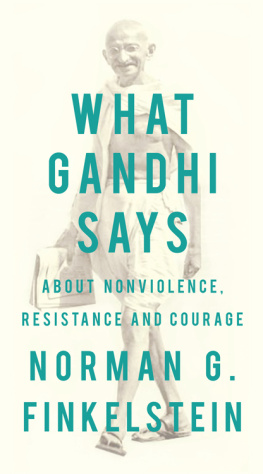
![Gandhi - Gandhi: [the true man behind modern India]](/uploads/posts/book/175484/thumbs/gandhi-gandhi-the-true-man-behind-modern-india.jpg)
